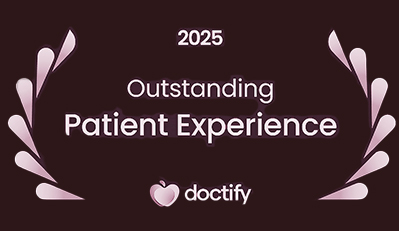With ICL surgery, patients can experience clear vision at all distances
Quickly discover how this advanced treatment can correct high myopia without altering the natural structure of your eye
3 simple steps to clear, confident vision
We’ve made your journey from glasses to freedom as easy and reassuring as possible


Step 1: GET IN TOUCH
Not everyone is suitable for vision correction. Start by finding out if it’s right for you. Call our friendly team or book online for a free phone assessment.


Step 2: YOUR BESPOKE ASSESSMENT
We’ll examine your eyes, answer your questions, and recommend the safest and most effective treatment for your lifestyle and prescription. You’ll leave knowing exactly what’s possible.


Step 3: ENJOY THE FREEDOM
After treatment, many patients say they wish they’d done it sooner. Enjoy clear vision, new confidence, and freedom from the limits of glasses and contacts.
Thousands enjoy natural, clear vision once again
Learn how they embraced a brighter life with our refined, stress-free eye care solutions

Hi, I’m Danny Mitry
Mr Danny Mitry is an expert cataract surgeon, vitreoretinal surgeon and medical retina specialist. He studied Medicine at Trinity College Dublin graduating with honours in surgery and subsequently completed a PhD at the University of Edinburgh. His higher specialist training was in London with advanced lens and retina fellowships in Moorfields Eye Hospital. He is a senior Consultant Ophthalmic Surgeon in the Royal Free London NHS Trust.
Mr Mitry is also an accomplished academic ophthalmologist who has published over 50 research articles in leading Ophthalmic journals. He has given many lectures nationally and has been an invited lecturer in Europe and the United States and has been commended for his skills in surgical training.
Mr Mitry is an acclaimed, highly experienced ophthalmic surgeon who has performed thousands of eye operations with an exceptional level of success and patient satisfaction. Mr Mitry prides himself on providing the best possible outcomes for his patients.





